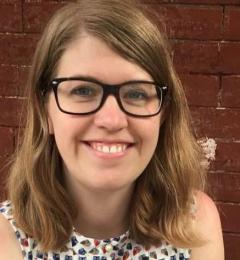Mahr (the Muslim dower) is regarded as obligatory to Muslim marriages. This means that when a Muslim man marries a Muslim woman, he provides her with a certain financial gift. However, this arrangement is controversial. Does Mahr entail the “sale” of a woman in a Muslim marriage? Because of such concerns, marriage rituals that contain mahr are not approved by the Norwegian state, as they are seen as contravening “Norwegian law and general gender equality principles”.
But does mahr merely entail the “sale” of a woman, or can it serve other purposes as well?
In this seminar, the lived experiences of Norway’s regulation of mahr will be examined. Building on a study of the Iranian diaspora in Norway, Marianne Bøe will explore the forms that mahr can take in contemporary Norwegian society. In her study, Bøe has conducted interviews with members of the Iranian diaspora, and has also studied documents relevant for Norway’s marriage ritual regulation. Does the present regulation of mahr contribute to safeguarding gender equality and the rights of women, or does it have other unintended effects?
The seminar takes place at seminar room 112 at Adm. org, Christies gate 17, on Wednesday 13th of June, from 12.30 to 14.00. A light lunch will be served.
All are welcome!
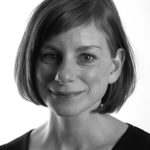 Marianne Bøe is a postdoctoral researcher at the Department of Archeology, History, Cultural Studies and Religion (AHKR) at UiB.
Marianne Bøe is a postdoctoral researcher at the Department of Archeology, History, Cultural Studies and Religion (AHKR) at UiB.
The city of Bergen has become increasingly ethnically diverse. Refugees have settled here, and labor migrants have come here to seek work. How does this impact the city of Bergen? What are the benefits, and what are the challenges? How does the municipality of Bergen manage this increasing diversity?
In this presentation, Sølve Sætre from the municipality of Bergen will present how the city of Bergen attempts to approach diversity. For several years, Sætre has been the main responsible for developing diversity policy at the municipality. Among other things, he has initiated a dialogue project together with the mosques in Bergen, he has been working with issues related to Roma migrants, and written the plans for diversity and inclusion. How has this approach worked?
The seminar takes place at the seminar room at the 2nd floor at Sampol, Christies gate 15, from 12.30 to 14.00 on Thursday 20th of September. A light lunch will be served at the seminar.
Welcome!
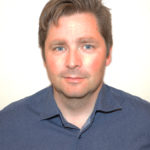 Sølve Sætre is an advisor at the Municipality of Bergen, tasked with developing diversity policy. He has a master’s degree in Comparative Politics from UiB.
Sølve Sætre is an advisor at the Municipality of Bergen, tasked with developing diversity policy. He has a master’s degree in Comparative Politics from UiB.
If a LGBTI person can “stay in the closet” in the country of origin, should she then be denied asylum as a refugee? This is currently a thorny issue for several European countries, when facing asylum seekers who apply for protection on the basis of their sexual orientation or gender identity. For this IMER seminar, Andrea Grønningsæter from the faculty of law at UiB will discuss how this is currently practiced in Norway.
Research has shown that that LGBTI people (lesbian, gay, bisexual, trans and intersex people) often face specific legal and procedural challenges when applying for refugee status. In a number of jurisdictions, including Norway, LGBTI asylum seekers have been denied refugee status with reference to the fact that they can abstain from behavior that may result in a risk of persecution. A gay person can live as a gay within the confines of the home, for example, but not on the streets – and may thus not be granted protection. It is then concluded that the requirement in refugee law of establishing a ‘well-founded fear’ of persecution is not fulfilled, because concealment will mean that the asylum seeker is not revealed to potential persecutors.
In 2012 the Norwegian Supreme Court considered the right to refugee status based on sexual orientation (Rt. 2012 s. 494). In the court’s decision it was stated that a gay person may not be required to hide their sexual orientation in the country of origin to avoid persecution. In cases where it is concluded that the asylum seeker will choose to conceal their sexual orientation, the court established a step-by-step approach for assessing whether the asylum seeker is entitled to refugee status.
For her PhD project, Grønningsæter looks at how the approach that was established by the Supreme Court in 2012 for assessing asylum cases based on sexual orientation or gender identity is interpreted by the courts and the immigration authorities. She explores how the courts and immigration authorities establish the asylum seeker’s reason for concealment, as well as how concepts such as ‘being open’ or ‘discreet’ about sexual orientation or gender identity is understood.
A light lunch will be served. Welcome!
Andrea Grønningsæter is a PhD candidate at the Faculty of Law, Bergen University.
In current debates about multicultural societies, ideas about active citizenship sometimes play a part. The increase of ethnic, cultural and religious diversity in Scandinavia has led to integration and naturalization policies that focus on social cohesion and stress the need for a shared set of values, identities and commitment to active participation in society. What kind of engagement is seen as good and legitimate, and what kinds of engagement are seen as illegitimate? For this IMER lunch seminar, Noor Jdid from PRIO and SKOK will present insights from her PhD project, which explores active citizenship in Norway and Denmark, among both minority and majority populations. She draws on ethnographic fieldwork in five different neighbourhoods in Oslo (Tøyen, Holmlia, Røa) and Copenhagen (Østerbro, Sydhavn), consisting of 69 life history interviews and 13 focus group discussions with residents of these neighbourhoods, as well as expert interviews and participatory observation. The analysis shows that the intersection of place, gender, class and ethnicity often shapes citizens’ understandings of their own civic engagement. When determining what ‘counts’ as a legitimate and valuable contribution to society, the research participants drew gendered and racialized discursive boundaries between the public and the private spheres.
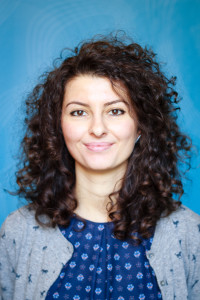 Noor Jdid is a Doctoral Researcher at the Peace Research Institute Oslo (PRIO) and Center for Women’s and Gender Research (SKOK). Her PhD is part of the larger SAMKUL-project “Active Citizenship in Religiously and Culturally Diverse Societies”.
Noor Jdid is a Doctoral Researcher at the Peace Research Institute Oslo (PRIO) and Center for Women’s and Gender Research (SKOK). Her PhD is part of the larger SAMKUL-project “Active Citizenship in Religiously and Culturally Diverse Societies”.
Refugees that are granted residency in Norway are temporarily immobilized in their new home municipalities through a combination of regulations. These regulations include the Introduction Act and the government’s policy of refugee dispersal. In what is to be their temporary community over a period usually lasting somewhere between 2-5 years, those settled undergo a process of (re-)qualification, or the introduction program, through which they are to be prepared for life in Norway. For this IMER lunch seminar, Gard Høibjerg from Inland University of Applied Sciences will present data gathered through seven months of ethnographic fieldwork in four rural municipalities. In his fieldwork, Gard followed the daily operations of refugee administration and adult education centers, interviewed the users of these services (i.e. people settled as refugees) and attended a series of meetings and activities organized by the volunteer sector. Based on this fieldwork, Gard will present findings from a paper that is currently under review named ‘We do not use freezers in Syria’: exploring the pursuit of belonging among refugees in a Norwegian village. Here, he offers a theoretical approach to better understand the process of refugee integration through a focus on the mundane activities of everyday life.
A light lunch will be served. All welcome!
 Gard Ringen Høibjerg is a PhD-candidate in public innovation at the Inland University of Applied Sciences in Lillehammer. His PhD project aims to analyze refugee integration in rural municipalities in Norway through a service perspective.
Gard Ringen Høibjerg is a PhD-candidate in public innovation at the Inland University of Applied Sciences in Lillehammer. His PhD project aims to analyze refugee integration in rural municipalities in Norway through a service perspective.
‘Crimmigration’ has become a critical “catch all” concept for legal scholars, criminologists, and sociologists alike. The concept describes the way two previously separate state control spheres – border control and crime control – influence each other and are part of the same control mechanism experiences and developments. This concept, for example, helps understand Trump’s effort to legitimize the tightening of immigration policy. It refers to both the protection of American economy and jobs and the explicit intent to protect American citizens from terrorists, rapists, and gang members. For this IMER lunch seminar, Synnøve Jahnsen from Rokkansenteret will talk about the usefulness of crimmigration as a concept in other settings. She will draw on empirical examples from her research on prostitution and human trafficking, Norwegian labour market crime policies, and the policing of outlaw motorcycle clubs and youth gangs in Australia and Europe. She will also use the opportunity to promote her new co-edited book “Criminal Justice in the Era of Mass Mobility” and highlight some of the methodological challenges faced by researchers in her field.
A light lunch will be served. All welcome!
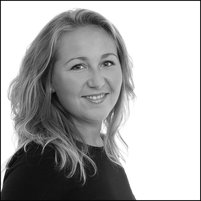 Synnøve Jahnsen is a postdoctoral research fellow at Rokkansenteret where she specializes in the sociology of law and criminal justice.
Synnøve Jahnsen is a postdoctoral research fellow at Rokkansenteret where she specializes in the sociology of law and criminal justice.
As the UN declared over 70 years ago, all human beings are entitled to certain inalienable rights. These rights are contested from numerous political and theoretical perspectives. There appears to be a general consensus that these rights, and perhaps especially the right to seek asylum, are not fit for our times and evolving circumstances.This perspective represents a duality. On the one hand, it is connected to anti-globalist movements and right-wing populism. On the other hand, it reflects a progressive impatience with global challenges, such as climate change which threatens the living environment of millions of people.
For this IMER seminar, Johannes Servan, an associate professor in philosophy, will present us with the cosmopolitan critique of human rights regime. What is the cosmopolitan critique, and what are the implications of this critique? How does this perspective alter the character of the moral and political claims of foreigners? The case of global climate change will be used as an example of a morally relevant circumstantial change where it is impossible to deny that we are all to blame – some more than others – for the damaging consequences of a changing climate. Does this change of circumstances require the recognition of new cosmopolitan rights?
A light lunch will be served!
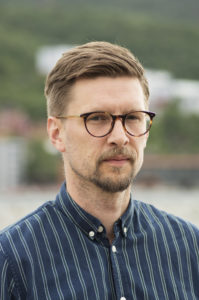 Johannes Servan is an assistant professor at Department of Philosophy, UiB. He is currently working on a post-doc proposal on climate refugees.
Johannes Servan is an assistant professor at Department of Philosophy, UiB. He is currently working on a post-doc proposal on climate refugees.
The question of migration is a multifaceted one. It impacts upon individual and social life long before a person’s departure or the crossing of borders. Tuning in with pre- and post-departure perspectives from the African-European border zone, this seminar will argue that migration cannot be understood if addressed as a series of events or movements in the here and now. On the contrary, it must be seen in relation to the experiences and ideas that predate and at the same time reach beyond the temporal settings in which they unfold. For this IMER seminar, Knut Graw from the Institute for Anthropological Research in Africa at the Kathlieke Universiteit Leuven will elaborate on this argument in relation to Senegal as a case study.
 Knut Graw (PhD) works at the Institute for Anthropological Research in Africa (IARA) and the Interculturalism, Minorities and Migration Research Centre (IMMRC) of the University of Leuven and, as associated researcher, at Zentrum Moderner Orient (ZMO), Berlin. His current research focuses on the situation of Senegalese migrants in Southern Europe and the cultural dynamics and transfers in the African-European borderzone.
Knut Graw (PhD) works at the Institute for Anthropological Research in Africa (IARA) and the Interculturalism, Minorities and Migration Research Centre (IMMRC) of the University of Leuven and, as associated researcher, at Zentrum Moderner Orient (ZMO), Berlin. His current research focuses on the situation of Senegalese migrants in Southern Europe and the cultural dynamics and transfers in the African-European borderzone.
Non-governmental organizations (NGOs) work closely with refugees by providing services and assistance. However, refugees might also be subjected to misconduct by NGOs. In such a scenario, how can NGOs be held accountable for wrongful acts?
For this IMER lunch seminar, Marianne Nerland from the Faculty of Law at UiB will present preliminary findings from her PhD project which explores recourses available to refugees seeking justice against NGOs. By drawing on interviews conducted with refugees as well as aid workers in Kakuma refugee camp in Kenya, Marianne will argue that there are serious legal obstacles that refugees face when wanting to file complaints against NGOs. This case highlights the need for an enhanced structure for NGO accountability in refugee camps.
A light lunch will be served! All welcome!
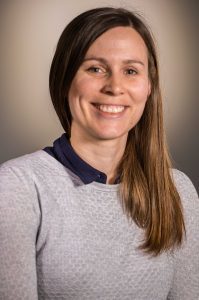 Marianne Nerland is a PhD candidate at the Faculty of Law, UiB
Marianne Nerland is a PhD candidate at the Faculty of Law, UiB
In this seminar, Mahmoud Keshavarz will present his recently published book, The Design of the Passport: Materiality, Immobility and Dissent. It is an interdisciplinary study of the passport and practices as a means of uncovering the workings of what he calls ‘design politics’. It traces the histories, technologies, power relations and contestations around this small but powerful artefact to establish a framework for understanding how design is always enmeshed in the political and how politics can be understood in terms of material objects.
Combining design studies with critical border studies, alongside ethnographic work among undocumented migrants, border transgressors and passport forgers, this book shows how a world made and designed as open and hospitable to some is strictly enclosed, confined and demarcated for many others – and how those affected by such injustices dissent from the immobilities imposed on them through the same capacity of design and artifice.
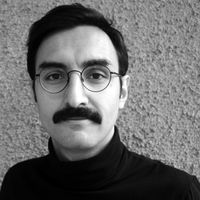 Mahmoud Keshavarz is a postdoctoral researcher at the Engaging Vulnerability Research Program, Department of Cultural Anthropology and Ethnology, Uppsala University. He is the co-founder of Decolonizing Design group and co-editor-in-chief of Design and Cultural Journal.
Mahmoud Keshavarz is a postdoctoral researcher at the Engaging Vulnerability Research Program, Department of Cultural Anthropology and Ethnology, Uppsala University. He is the co-founder of Decolonizing Design group and co-editor-in-chief of Design and Cultural Journal.
This seminar is organized by IMER in cooperation with the at the WAIT-project at the Centre for Women’s and Gender Research (SKOK).

